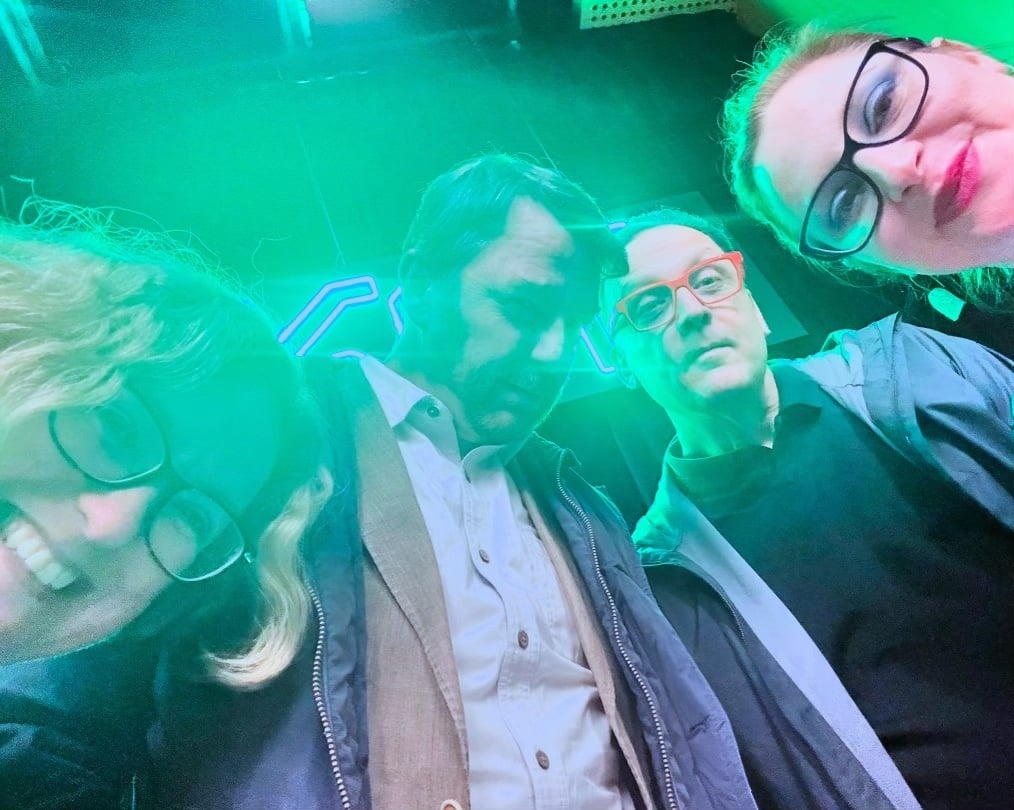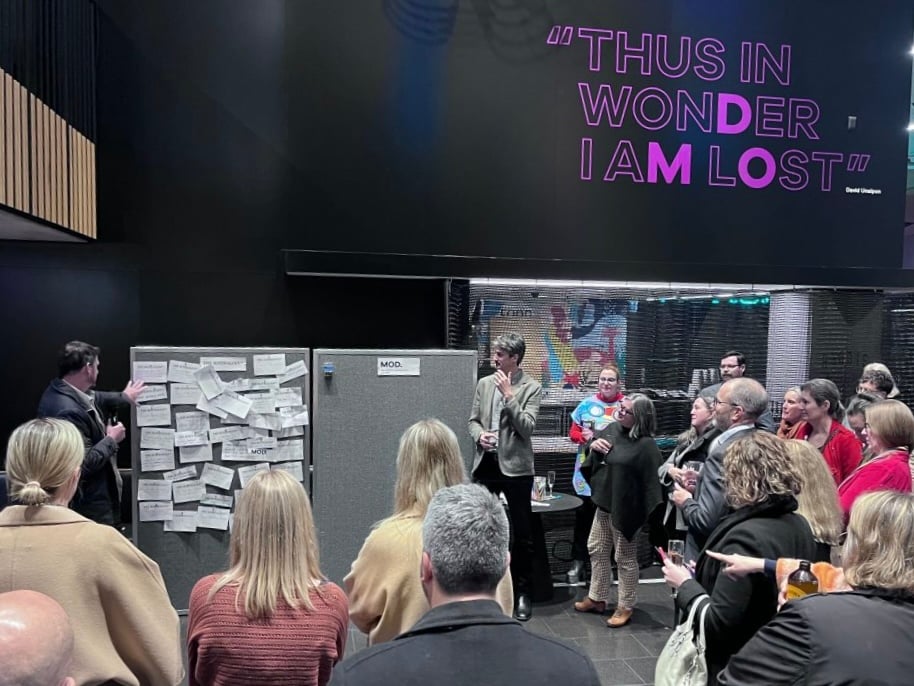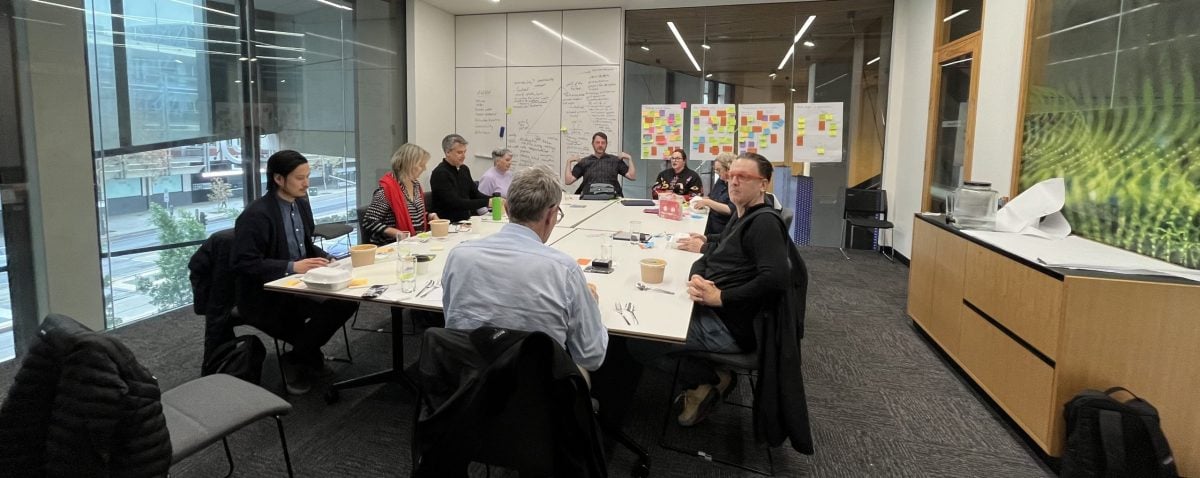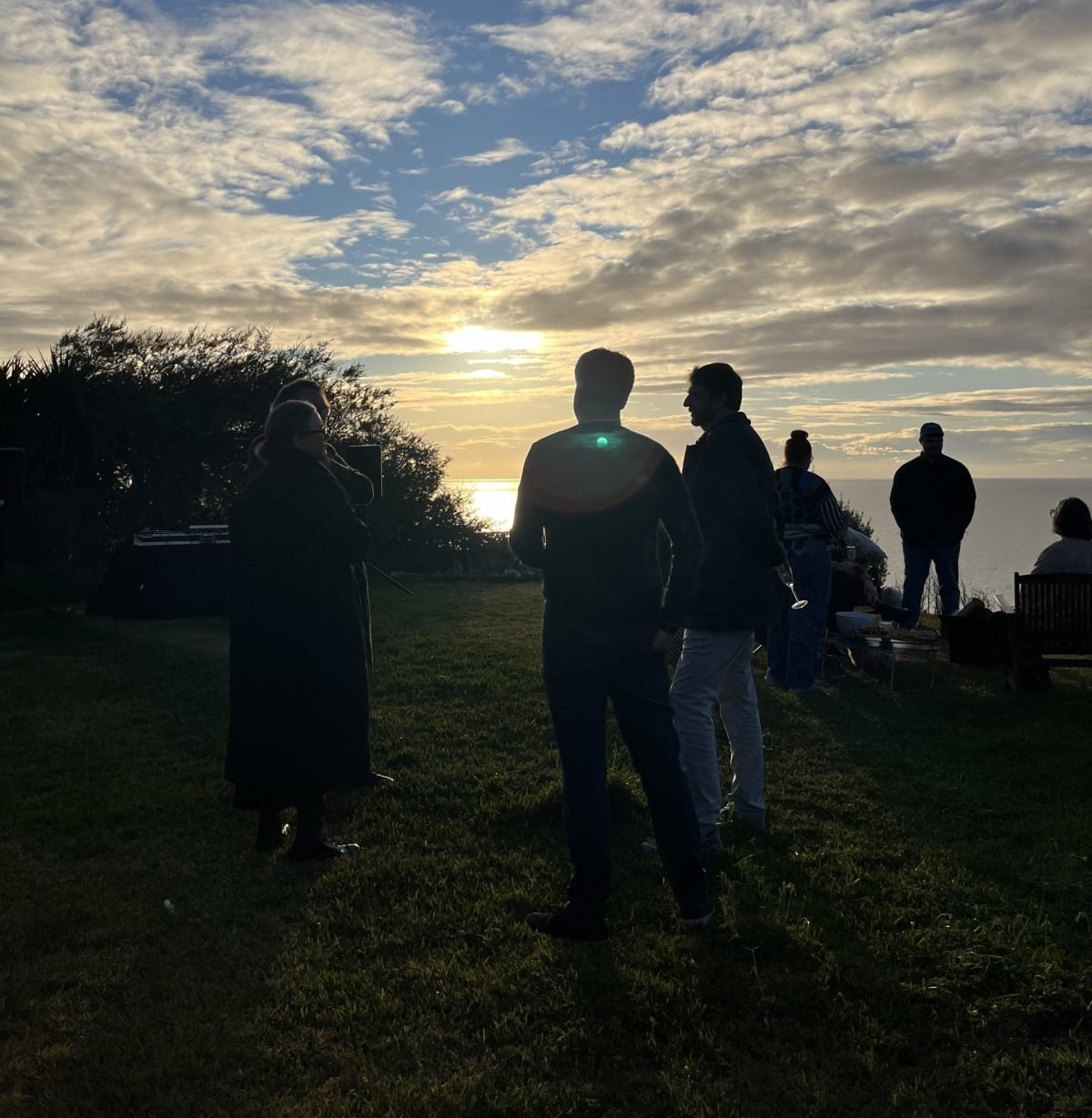Posted 23 Aug

Jake Dunagan is an experiential futurist, political system designer, and teacher. He is director of the Governance Futures Lab at the Institute for the Future (IFTF), a non-profit education and research organisation based in California, and teaches foresight in the School of Design and Creative Technologies at UT-Austin. He joined us in June-July as our Futurist-in-Residence and SA Water Visiting Research Fellow (VRF). Read Jake’s reflections on his stay in Adelaide below.
As futurists, claiming that you can predict the future is a sin punishable by death. But risking this fate, I will admit when I left North America to become MOD.’s futurist in residence, I knew chaos was coming in the U.S. presidential race. The exact nature of the chaos was uncertain, but I was fairly certain one or both candidates would be out before the season was over. As futurist in residence, I focused on the nature and conditions that make a population governable. It was an intentional choice to look at the foundational, subterranean characteristics of governability that are typically taken for granted in modern democracies. But those subterranean vaults have been thrown open in recent years, unleashing deep psycho-social forces. Adelaide was to be a lofty, antipodean perch to watch and reflect upon the tumult.
I arrived in Adelaide with my family on the solstice, June 21. Leaving North America on the longest day of the year and arriving on the shortest. The U.S. presidential race was grinding along in the rear view mirror, with the dynamics seemingly locked-in, and an uncanny malaise setting in across the electorate. The Israel-Gaza war and Russian invasion of Ukraine were also in a miserable, predictable stasis. The calm before the storm. By the end of just the first week, Biden’s debate debacle shook everything up. Two weeks later, a 20-year-old gunman climbed on a roof and attempted to assassinate Trump at a Pennsylvania rally, killing one and injuring others. Just a week after that, as I wrapped up my last day as futurist in residence, Biden was out and Vice President Harris ascended into leadership of the Democratic Party.
While this is a U.S.-centric account of events from June 21-July 21, there have been few more significant months in world history, with the ultimate impacts that will ripple for decades.
These events were the backdrop for a stimulating time as futurist in residence, consisting of:
I thank the sponsors of the residency and all the folks at MOD, especially Kristin Alford and Brooke Ferguson for their care and commitment to making this a peak experience personally and professionally.

The initial questions that motivated the residency began with trying to understand the basic conditions that make a society governable. What kind of social norms and civic knowledge are needed? How would a poisoned information sphere impact collective decision-making and representation? What is the shared vision of the future “we” want? How do we define “we”?

But as world events seemingly unravelled known reality on a daily basis, I began to wonder if we as a species are even governable at all? Are we even capable of rational thought? Do we have a chance against the weaponized forces of disinformation and super-persuasion? Are we too tribal to have collective visions of the future? Are we stuck in a zero-sum game of winners and losers, masters and slaves? Who are “we” anyway?
As I walked on evidence of life from 750 million years ago, the question I was left contemplating, and remain contemplating, is, simply: how do we live together, whatever we are? This is a question that, perhaps, lies at the heart of all political thought and theory. It is the ultimate question for the future of human (and non-human) existence on Earth.

Catalysed by my futurist in residence experience, and the opportunity to work with scholars, public officials, creatives, and others in the MOD ecosystem, I had time and space to ruminate over these fundamental questions. These are not questions that lend themselves to final answers. A theme I kept returning to was the notion of escape. In a sense, I had accepted the residency with a mindset that I could “escape” the insanity of the U.S. political scene for a few weeks (not to mention the summer heat in Texas). I kept asking, perhaps rhetorically, if the U.S. descends into authoritarian collapse, where in the world will the flame of freedom and democracy still burn? Where would the resistance be based? Australia in that scenario, looked like one of those sanctuaries.
But a feeling grew in me, as these conversations continued and insights emerged, that all those far-away events have real, visceral impacts on almost everyone, everywhere. There is no escape. There is no safe haven from the forces who seek domination and dominion. Strangely, this realization did not cause despair. In fact, I began to feel liberated and energized. The resistance to domination will have to happen everywhere. Viable governability will be a people-led movement. A renaissance of anticipatory democracy might offer a future that does not merely hold on to the scraps of justice, but dramatically changes the paradigm of what governability means, and how it happens. It might mean a totally new way of partitioning the Earth, representing political subjects, managing economic and eco-systems, and living and working together.
“No escape” does not mean we are stuck in a prison, but rather that we have agency to re-invent and re-model our systems in ways we have been too limited to imagine. Ultimately, it took traveling across the world to recapture a simple truth, “we’re all in this together.”

Find out more about Jake’s work here.
Header photo features Dr Kristin Alford, Dr Jake Dunagan, Scott Smith and Dr Ariella Helfgott at the Foresight Community of Practice.
Hear from the other Futurist-in-Residence who have participated in the program: